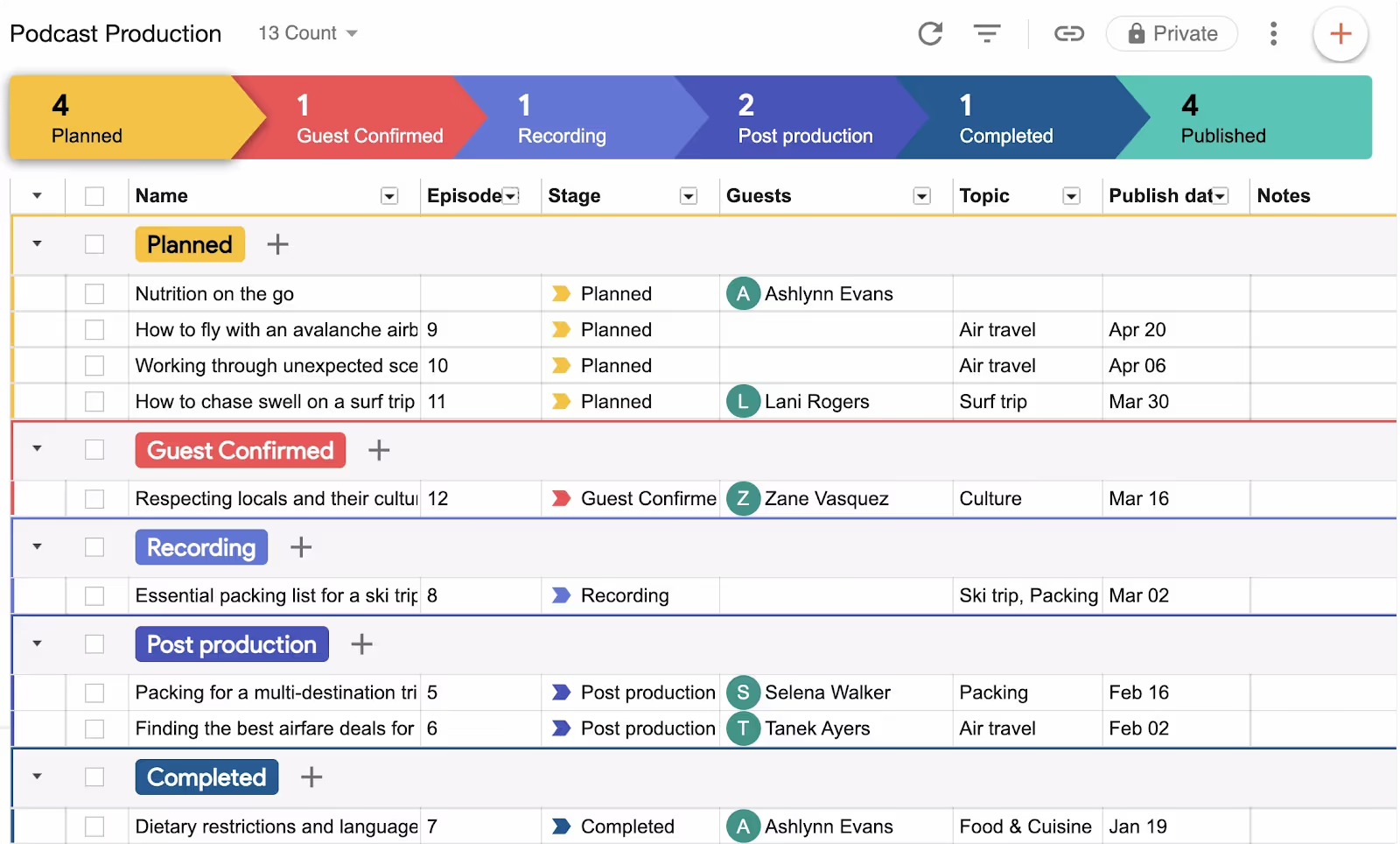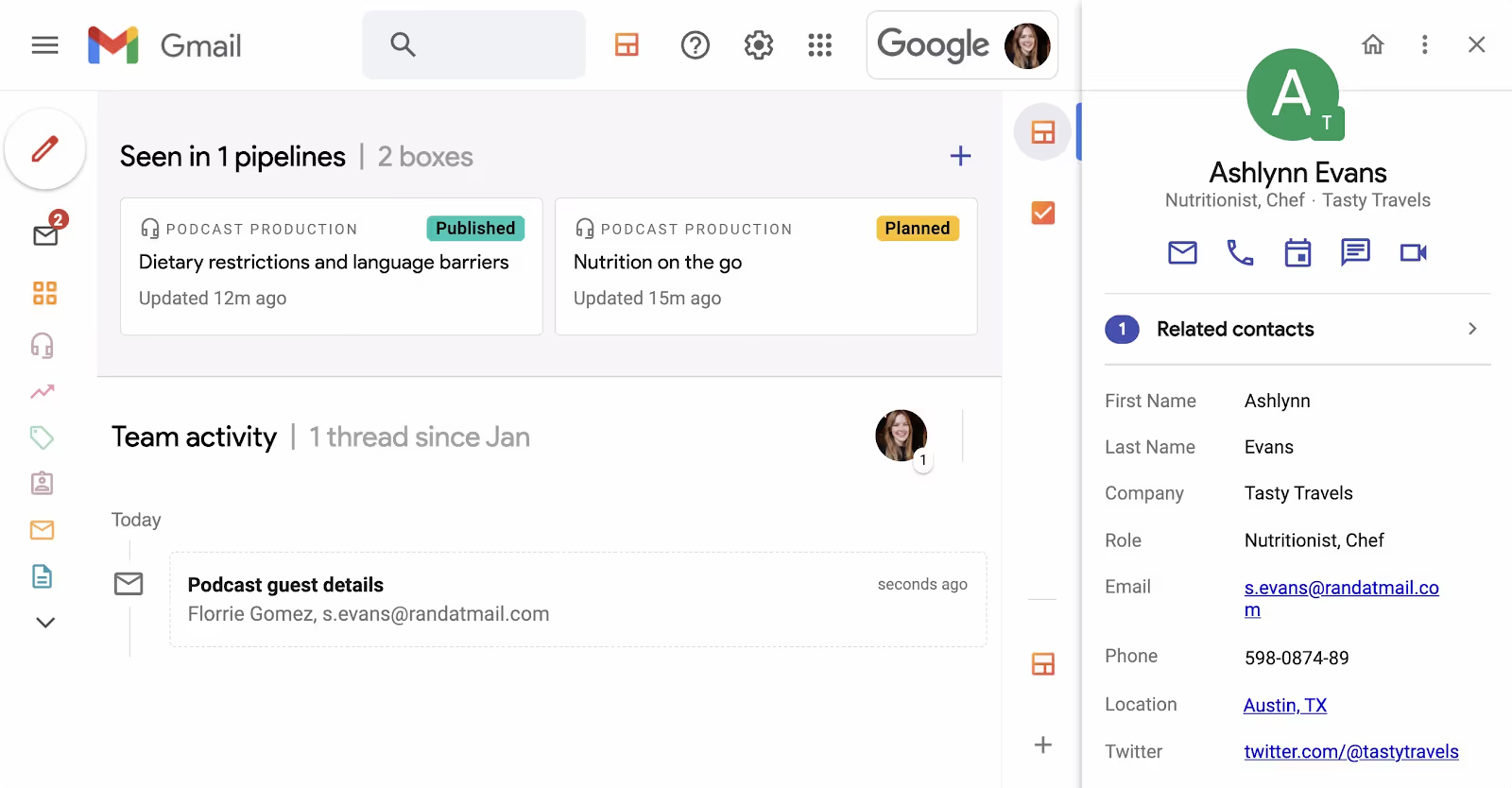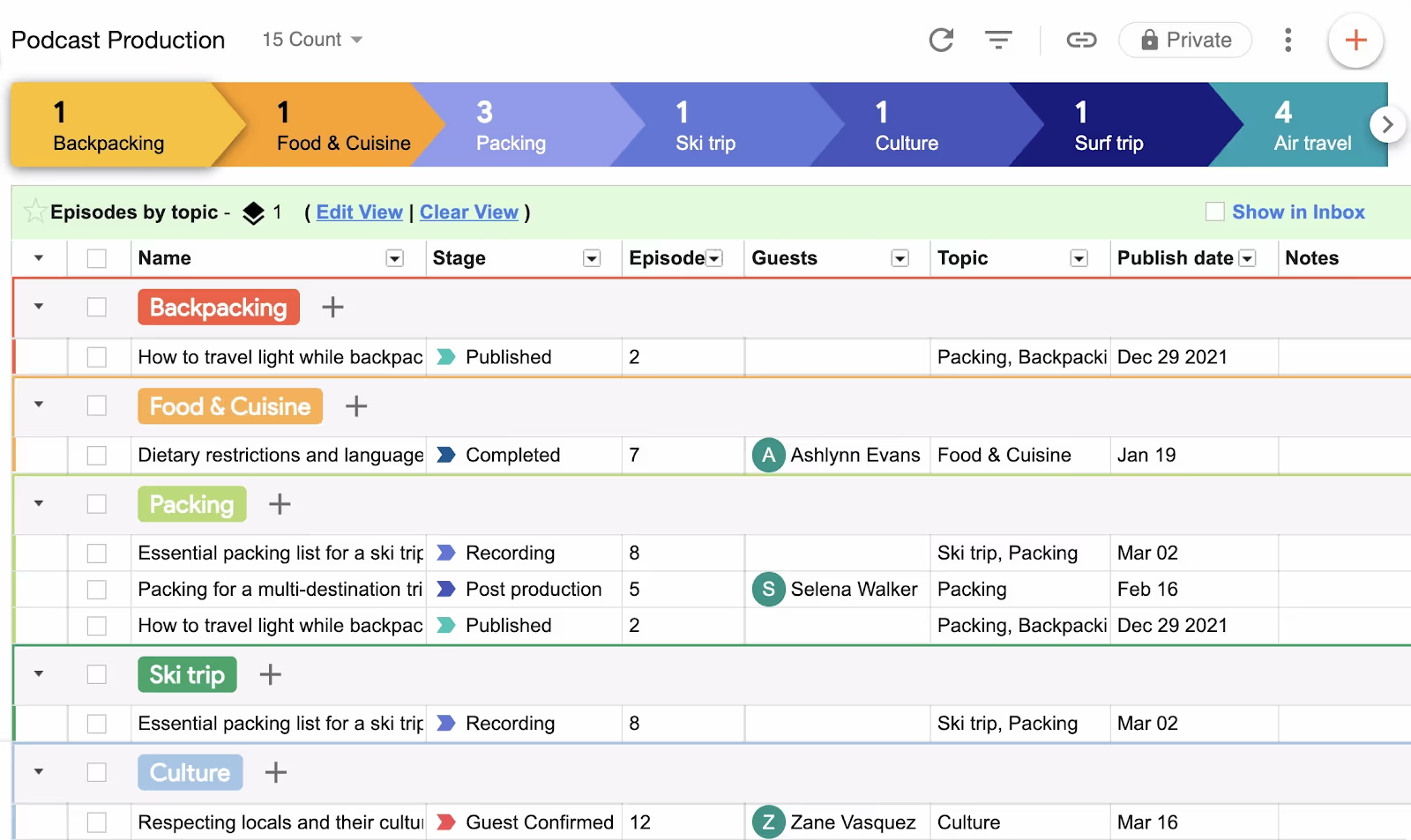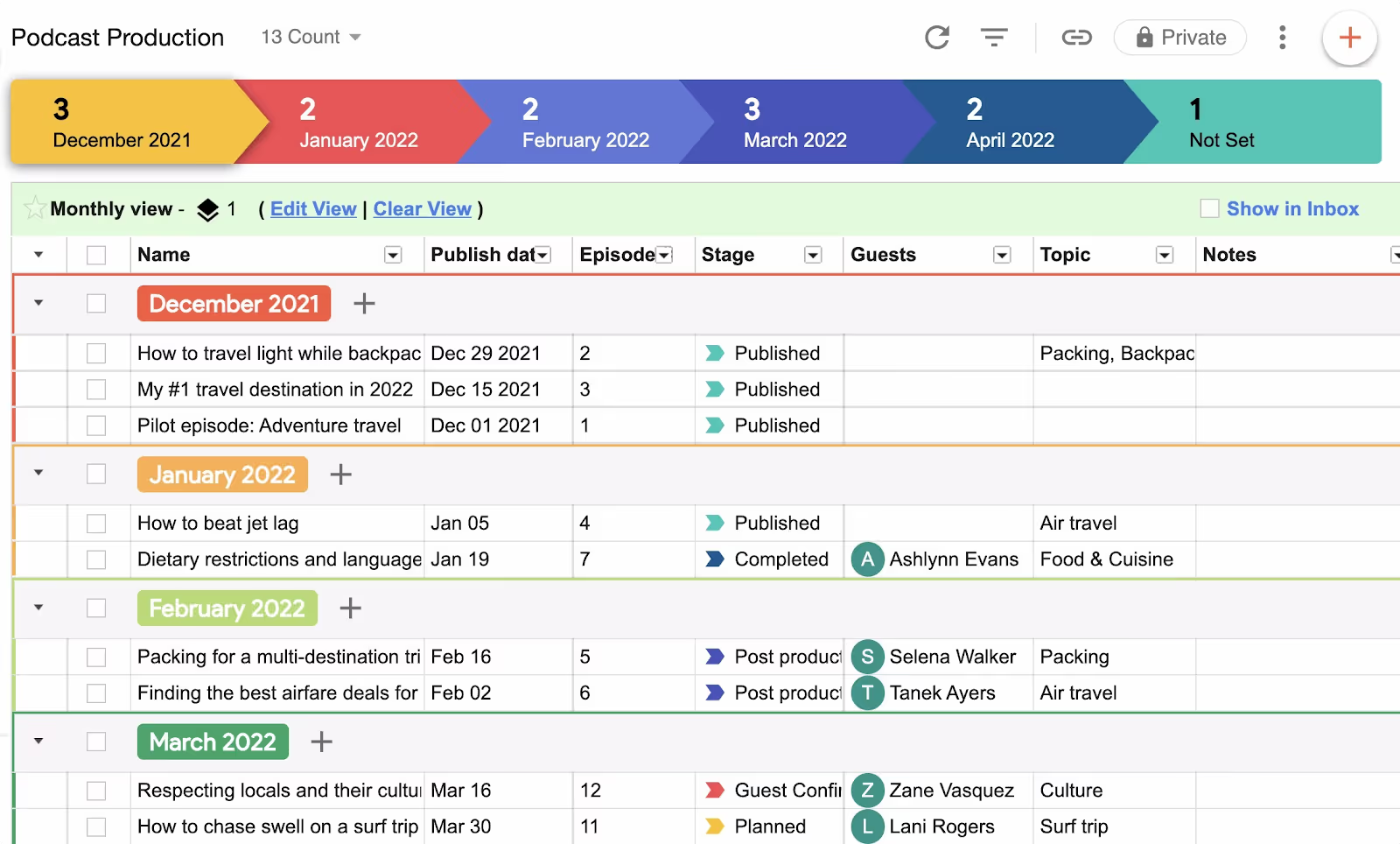How to Grow Your Business with a Podcast
With so much buzz about podcasting, how can you get in on your share of the podcasting profits?
Podcasts have continued to grow in popularity over the years, with more podcasts consumed and created each month. With the advent of the remote work movement, many people are tuning in to get news, learn new skills and ideas, and entertain themselves. Additionally, those thinking about hosting a podcast have ample reason to launch their own with a broader reach.
However, we've seen so many new podcasters flounder because they don't understand how to organize podcast production and lack proper planning. Ultimately, this causes more production work and leaves less time for the creative (and fun!) aspects of a successful podcast.
Organizing a podcast episode will give you the structure to focus on creating quality content.
Why is this important?
Well, every new podcast episode needs to have a consistent podcast format and proper podcast structure.
Sure, you can create a podcast and fly by the seat of your pants, deciding what episode you want to publish each week… but that isn't an excellent way to produce quality content for the avid podcast listener.
Your target audience, generally speaking, is discerning and looking for quality content that is entertaining and informative. They need to know what they'll get out of your podcast when they tune in.
Planning your episodes and topics allows you to have a cohesive podcast episode structure that acts as an extension of your brand. If you're making up your content on the fly, your audience will be able to tell, and you won't receive the dedicated listener base needed for your podcast to flourish.
The tips below will help you organize your podcast production so you can focus on creating quality content and building your dedicated listener base.
When creating content for your audience podcast, you need a podcast schedule to keep you in check. We are generally surprised by how many podcasters don’t use a production schedule.
A production schedule is a simple calendar, table, spreadsheet, or pipeline where you can track details about each episode. Regardless of which tool you use, the most crucial aspect of your production schedule is that you maintain it.

💡 Tip: Managing your production schedule in Streak allows you to plan episodes, organize files, and track your progress in Gmail, where you’re already emailing podcast guests and any production assistants.
Many newbie podcasters throw all their files—audio, video, finished and unfinished—into one big folder or scatter them randomly on their desktop. This is very inefficient and will substantially slow you down if you have to search for an episode every time you need one.
Streak allows you to organize your files, details about the episode, what stage it's in, and contact information for guests all in one place. Each component you're tracking in Streak, in this case podcast episodes, is organized in a “box” within your pipeline. A box is like a workspace for each episode, where you can take notes, track changes, upload files, and record important details, like talking points or a podcast script, for example.
You'll want to make sure you have the following files in each episode box:
You may also want to create a separate pipeline or box in your project management tool to organize assets used in each episode, like music, midroll, and a podcast intro and outro. These should be easily accessible as you edit and produce your recordings (or have them on hand to send to your podcast editor if you have one).
If you're not yet using Streak, the best way to organize your files is to create folders on your computer or in cloud storage. Start with a master “podcast” folder. Next, make a set of subfolders that have 25 episodes each. For example, Podcast episodes 1 to 25. Then, in the first subfolder, make a single folder for each episode. This way, you can easily find the assets you need to edit and publish your next podcast episode.
💡 Tip: Do not put your original files in a shared location for your production team to use. Keep your originals in cloud storage or your CRM, and make sure to only share copies of your files (not originals) with your production team or assistants. Unfortunately, this can go sideways – people have accidentally deleted or misplaced original files, which leads to recreating the podcast production work you have spent your valuable time creating.
Every podcaster should start by tracking a few essential pieces of data for each new episode to stay organized:
This information will help you stay focused on podcast planning for each episode so things run smoothly once you're recording. Create a column for each piece of information you want to track so you can easily update each episode with your progress, as well as filter and sort by topic, date, interview questions, or other details.
Organizing episode links in your pipeline allows you to easily find and send links to your interview guests so they can share and post your podcast on their social media platforms, giving you more exposure.

💡 Tip: Streak Contacts and organizations allow you to keep track of information for each of your interview guests and are auto-enriched with any publicly available information like their social media and website links. Once you add contacts, you'll also be able to see a timeline of emails you've had with them and other episodes they've appeared in.
Within your podcast subject, you'll end up covering a few categories of topics. For example, an adventure travel podcast might discuss topics about public travel, packing, ski trips, surf trips, gear, culture, and cuisine.

Tracking your podcast episodes and topics in Streak pipelines allows you to visualize and plan your topics easily, so you don't have to repeat topics in the same month or go too long without covering a specific topic.
💡 Tip: Group your podcast episodes by topic to see which topics you haven't covered as much and help plan future episodes.
A production schedule helps you stay on top of what's coming up and when you need to schedule your episodes. You can track each episode's publish date with a date column in your spreadsheet or in Streak.
A good podcast host uses a timeline or calendar of your planned episodes. That way, you can make sure your podcast covers various topics and avoid too many repeat topics in a month. If needed, this can help you understand how you might want to move episodes around in your schedule.

💡 Tip: In Streak, group your pipeline by the publish date to see a timeline of your episodes for each week, month, or quarter. This view helps you see which topics you're covering each month and make sure you have regularly scheduled episodes to attract new listeners.
Lynn Smargis helps provide quality content to launch and relaunch podcasts for creatives and small business owners who are looking to start a podcast but are unsure of where to start. Get help fast-tracking your new podcast on the Write For You website.
